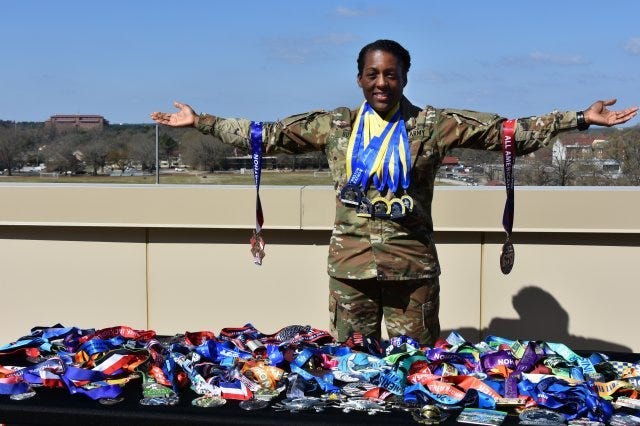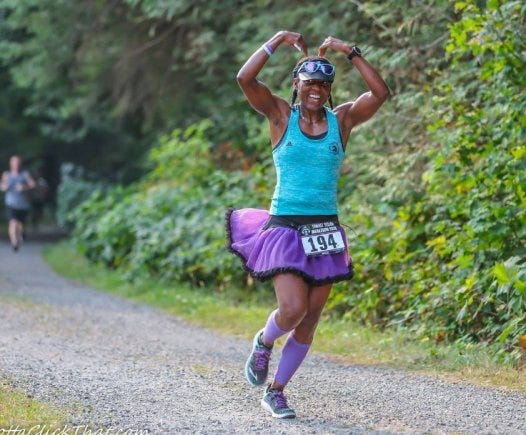
By Eve Meinhardt, FORSCOM
It all started when she was stationed in Virginia 12 years ago. That's when Chief Warrant Officer 4 Beofra Butler saw everyone training for the Marine Corps Marathon and decided to give the 26.2 mile race a try.As a Soldier, running was already a part of her daily life and physical fitness routine. She had ran several other shorter races to include the Army 10-miler and a few half marathons, so the challenge of a full marathon appealed to her. She wasn't even afraid of the dreaded "wall" that everyone told her she would hit around mile 20 when her body would start shutting down as energy stores ran low and fatigue set in."I had never experienced the wall and was feeling pretty great," recalled Butler. "I saw the mile markers for mile 19, then mile 20, then 21. I was feeling good and thinking to myself that maybe I avoided the wall. Then at mile 22, everything from my waist down locked up -- it felt like I really did hit a wall. My muscles were in knots, my toes were cramping and every time I took a step it just hurt."A lady tapped her on the shoulder and encouraged her to move off to the side and stretch before resuming the race."I wanted to cry," she said. "I knew it was just four more miles. I wobbled to the finish along with a bunch of other people doing the exact same thing."After the race later that night, with ice bags on her legs and a computer on her lap, Butler signed up for her next marathon. "I just had to do it again for myself so I could figure out how to do it without pain," she said.Butler ran her second marathon during a deployment, followed by another and another and another. She's preparing to run her 100th marathon in Boston on April 15. The race will be her sixth Boston Marathon and she says that it is fitting because it's her favorite event."There's something special about running in Boston," she said. "It's the only race you have to qualify for to get in and after working so hard to be a part of it, you really enjoy the moment when you get there. The support of the crowd is amazing and it's just a great place to be."She got there by figuring out how to avoid that wall of pain."For the most part, I don't hit a wall anymore," Butler said. "Now I know what that feels like and I never want to feel it again."How does she do it? The way anyone in the Army does anything -- with an abbreviation. According to Butler, the key to running a successful marathon comes down to the 3P's: pacing, patience and practice.

